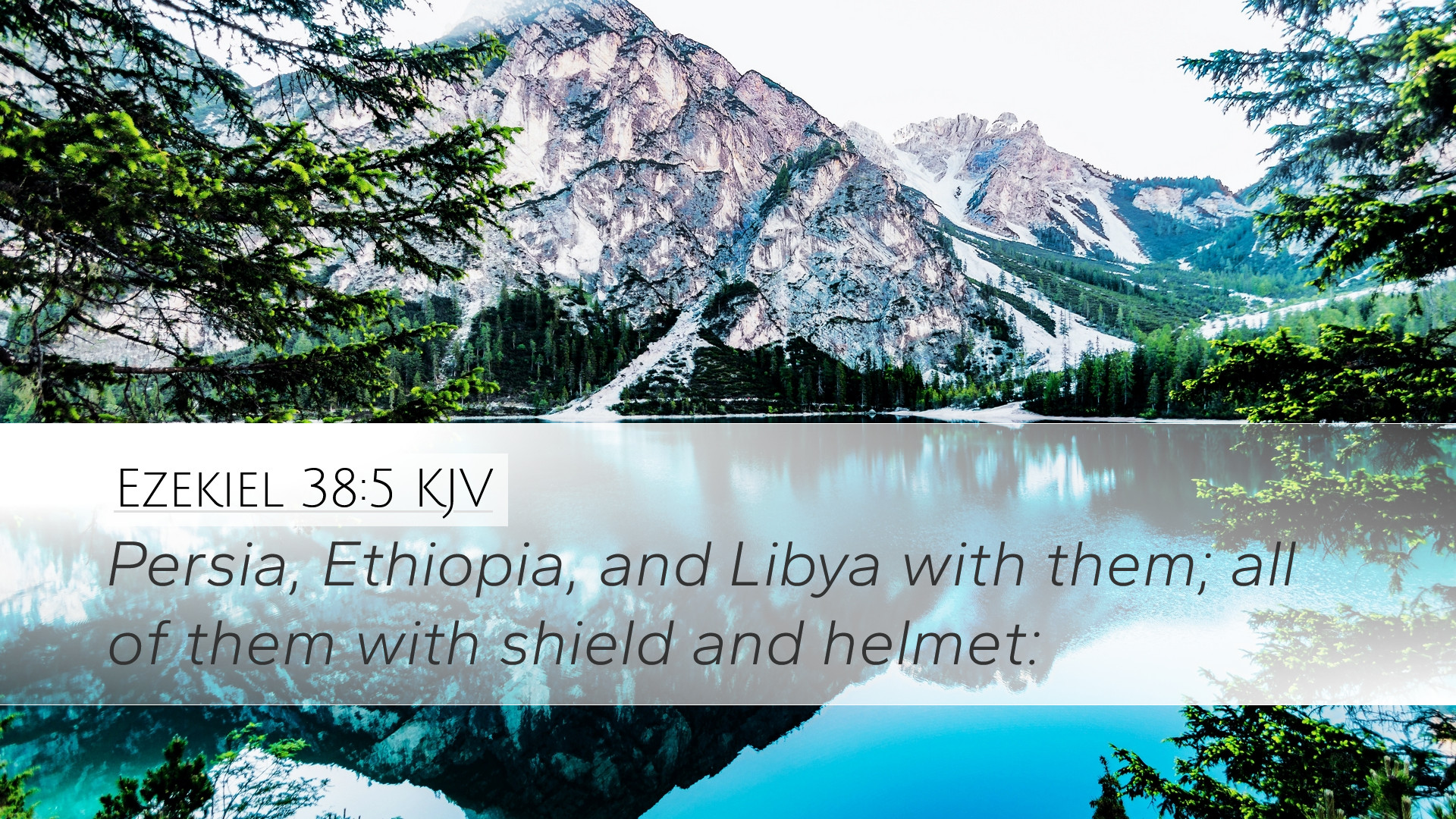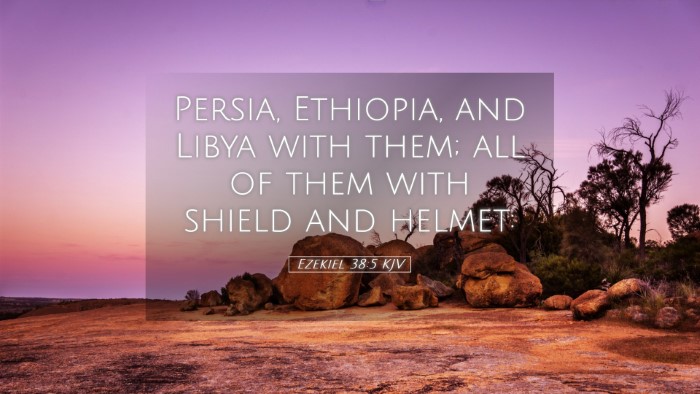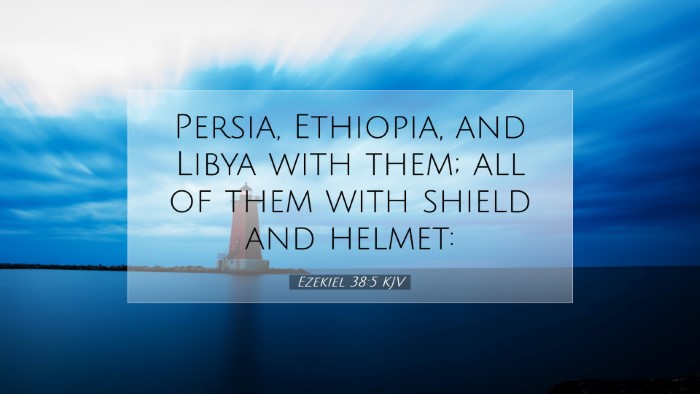Ezekiel 38:5 - Commentary and Insights
Ezekiel 38:5 reads: "Persia, Cush and Put will be with them, all with shields and helmets." This verse is situated within a larger prophetic discourse that speaks to the future invasions of Israel and the resulting divine confrontation. This commentary brings together insights from various public domain sources to foster a deeper understanding of the text.
Contextual Analysis
In chapters 38 and 39, the prophet Ezekiel describes a series of events concerning Gog, a figure representing an enemy nation or coalition that will rise against Israel in the last days. Understanding the geographical and political entities mentioned in 38:5 is critical to grasping Ezekiel's prophetic vision.
Historical Background
- Persia: Known in modern times as Iran, Persia is emblematic of an ancient empire that posed threats to Israel. The inclusion of Persia in this prophecy signifies a powerful adversary.
- Cush: This refers to regions south of Egypt, namely present-day Sudan and parts of Ethiopia. Cush is often associated with warriors, thus reinforcing the military aspect of this prophecy.
- Put: Associated with North Africa, particularly Libya. The mention of Put indicates a coalition of nations contributing to the army against Israel.
Exegetical Insights
Albert Barnes posits that the mention of these nations hints at a broad coalition that forms against Israel, emphasizing the extent of opposition that Israel will face. It indicates a universal alignment of forces against God's people.
Matthew Henry highlights the symbolic representation of these nations. He suggests that they unveil the spiritual reality behind the physical nations portrayed, namely, the forces of evil and opposition to God's governance and Israel's restoration.
Adam Clarke elaborates on the phrase "all with shields and helmets", interpreting it as a representation of the complete military readiness of these nations. This imagery evokes a potent picture of preparedness and ferocity that opposes God's people, signifying a concerted effort against divine purposes.
Theological Implications
From a theological standpoint, this verse encapsulates several core themes relevant to pastoral and scholarly reflection:
- The Reality of Spiritual Warfare: The coalition of nations serves as a metaphor for the spiritual battles faced by God's people, emphasizing that opposition often comes from diverse fronts.
- The Sovereignty of God: Despite the formidable enemy depicted, God's overarching sovereignty assures believers that He ultimately controls the fate of nations and their destinies against Israel.
- The Fulfillment of Prophecy: This prophecy serves to remind believers of God's faithfulness in fulfilling His word, and it encourages prophetic awareness of the times ahead.
Practical Applications
For pastors and theologians, the insights gathered from Ezekiel 38:5 provide several practical applications:
- Awareness of Global Forces: Leaders should be cognizant of the geopolitical narratives that impact Israel and by extension, the Body of Christ, engaging in prayer and intercession.
- Preparation for Trials: Just as the nations are armed, believers should be spiritually equipped (Ephesians 6:10-18) to withstand opposition, trusting in God’s protection and guidance.
- Encouragement for the Faithful: In times of distress unleashed by worldly forces, the assurance of God’s protection, as promised throughout Scripture, offers hope and strength to persevere.
Conclusion
Ezekiel 38:5 not only provides a snapshot of ancient alliances against Israel but serves as a poignant reminder of the perennial conflicts that God’s people face. The insights provided by public domain commentaries deepen our understanding of this divine warning and underscore the importance of remaining vigilant and prepared in our faith.
May this commentary enrich the studies of pastors, students, and scholars, inspiring a deeper exploration into the prophetic texts of Scripture and their relevance to contemporary issues of faith and resistance.


